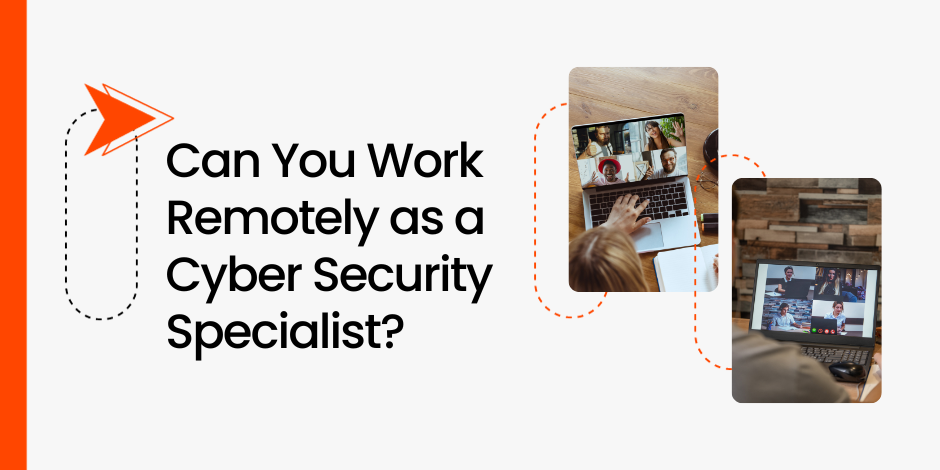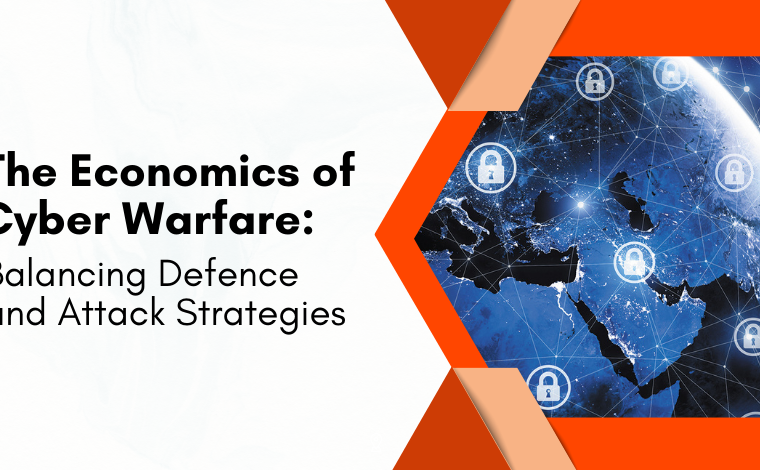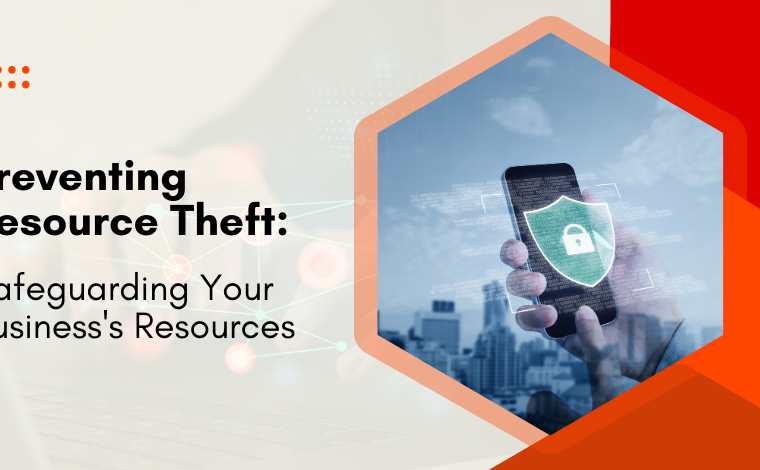Can You Work Remotely as a Cybersecurity Specialist?

Stay Informed With Our Weekly Newsletter
Receive crucial updates on the ever-evolving landscape of technology and innovation.
In today’s digital age, where technology drives industries and organisations, the demand for cybersecurity specialists is on the rise.
As companies increasingly embrace remote working environments, students and professionals in the field are wondering, “Can I work remotely as a cybersecurity specialist?”
The short answer is yes, you can. There is no limit to the potential of a career in cybersecurity… keep reading to find out why.
Understanding the role of a remote cybersecurity specialist

A cybersecurity specialist plays a crucial role in safeguarding digital assets, networks, and systems from potential threats and attacks.
Their primary responsibility is to ensure the confidentiality, integrity, and availability of sensitive information and protect it from unauthorised access.
As technology continues to advance, so do the tactics used by cybercriminals.
Cybersecurity professionals are the frontline defenders against cyber threats, working tirelessly to keep our digital world safe and secure.
Key responsibilities of a remote cybersecurity specialist
As a cybersecurity specialist, you will take on various responsibilities to secure the organisation’s digital assets:
- Identifying and assessing potential security risks and vulnerabilities.
- Developing and implementing effective security measures and protocols.
- Monitoring and analysing security logs to detect and respond to threats.
- Conducting regular security audits and assessments.
- Providing guidance and training to employees on security best practices.
Each of these responsibilities requires high expertise and attention to detail. Cybersecurity specialists must have a deep understanding of the ever-evolving threat landscape and be able to adapt their strategies accordingly.
Moreover, effective communication skills are essential for cybersecurity specialists.
They must be able to clearly articulate complex technical concepts to non-technical stakeholders, such as executives and employees, in order to gain their support and cooperation in implementing security measures.
Required skills and qualifications
You need a strong blend of technical skills and qualifications to excel as a cybersecurity specialist. Some essential requirements include:
- A deep understanding of networking protocols and systems.
- Proficiency in programming languages and scripting.
- Knowledge of encryption algorithms and cryptographic techniques.
- Familiarity with security frameworks and regulations.
- Certifications, such as Certified Information Systems Security Professional (CISSP) or Certified Ethical Hacker (CEH), can also add value to your profile.
However, technical skills alone are not enough. Cybersecurity specialists must also possess strong problem-solving and analytical thinking abilities.
They must be able to quickly identify and assess potential threats and develop effective strategies to mitigate them.
Check out our top 4 tips on how to become a cybersecurity analyst here.
The rise of remote work in the tech industry

The COVID-19 pandemic has accelerated the adoption of remote work across industries, and the tech industry is no exception.
With advances in technology and the availability of robust communication and collaboration tools, more companies are embracing remote work as a viable option for their employees.
Impact of the pandemic on remote work
The pandemic forced many organisations to shift their operations online and implement remote work policies.
This sudden transition highlighted the importance of remote work capabilities and demonstrated that many job roles, including cybersecurity, can be effectively performed remotely.
Organisations witnessed increased productivity, reduced overhead costs, and improved employee satisfaction levels. As a result, remote work is now seen as a long-term solution rather than just a temporary measure.
Benefits and challenges of remote work
Remote work offers numerous benefits for both employees and employers:
- Flexibility: Remote work allows professionals to have a better work-life balance and adapt their schedules to meet personal needs.
- Increased productivity: Remote workers can often focus better without distractions commonly found in office environments.
- Cost savings: Remote work eliminates commuting costs and reduces expenses associated with office space.
- Geographical flexibility: Remote work allows companies to hire talent from anywhere in the world, expanding the available pool of skilled professionals.
However, remote work is not without its challenges. Cybersecurity specialists often need to handle highly sensitive and confidential data, which requires secure systems and networks.
Collaborating and sharing information securely can be challenging when working remotely, but not impossible.
Trends shaping the future of remote work

Remote work is likely to become more prevalent in the cybersecurity domain due to the following trends:
- Increasing adoption of cloud technology: Cloud-based platforms and services make it easier to perform cybersecurity tasks remotely.
- Advancements in artificial intelligence and automation: AI and automation can streamline repetitive tasks, allowing cybersecurity professionals to work remotely on higher-level strategic work.
- Demand for work-life balance: As professionals increasingly seek work-life balance, remote work options become more attractive.
In Conclusion
Remote work can open up brand-new career opportunities for cybersecurity specialists. As more companies embrace remote work, the geographical limitations on job opportunities diminish, providing access to a global talent pool.
With the right tools, qualifications, and mindset, you can excel in this field and contribute effectively to securing digital assets and networks from anywhere in the world.
It requires a combination of technical expertise, strong communication skills, problem-solving abilities, and an ethical mindset.
As technology continues to advance, the need for skilled cybersecurity professionals will only continue to grow. Click here to see how the Institute of Data can help you prepare for an exciting career in cybersecurity.




